With a credit growth target of 16%, it is estimated that more than VND 2.5 million billion will be pumped into the economy to actively support the GDP growth target of over 8% in 2025 approved by the Government and the National Assembly.
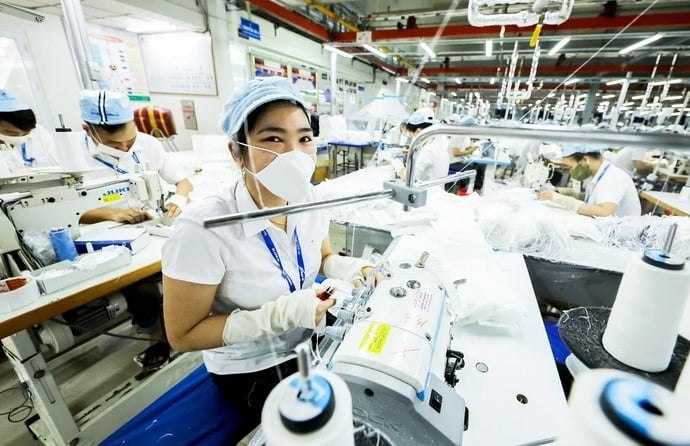
However, Mr. Dao Minh Tu, Deputy Governor of the State Bank of Vietnam (SBV), affirmed that the SBV determined to operate monetary policy has the ultimate goal of supporting economic growth. If we actively lend to the right people and promote capital sources as well as ensure the safety and soundness of the bank, credit can increase further. But how to use capital effectively to promote economic growth?
Businesses are still "thirsty" for capital
Speaking with Tuoi Tre, Mr. Nguyen Phuoc Hung - Vice President of the Ho Chi Minh City Business Association - said that in recent years the State has issued many positive policies to support capital, helping businesses access the best capital sources.
In particular, the debt restructuring policy, maintaining the debt group in accordance with Circular 06, has helped businesses relieve debt pressure, supplement cash flow and contribute significantly to the recovery and development process. However, a recent survey by the association with businesses in Ho Chi Minh City shows that the business situation is still facing many difficulties.
According to Mr. Hung, up to 75% of businesses have not been able to completely clear their inventories, 67% of businesses have outstanding debts that are difficult to collect, 21% of businesses are forced to plan to reduce their workforce, and up to 50% of businesses have requested credit support and interest rate reduction.
Meanwhile, according to the Association Bond market According to Vietnam Business Association (VBMA), the value of corporate bonds due at the end of 2024 is nearly VND80,000 billion and the amount of bond debt to be paid in 2025 is estimated at VND180,000 billion. Circular 06, effective until the end of 2024, has created pressure as businesses will have to suddenly withdraw cash flow.
Given the difficult situation of enterprises and the instability of the export market, according to Mr. Hung, the State Bank of Vietnam needs to require commercial banks to share difficulties with the community by fixing the "net interest margin" (NIM) at an average of 3%. This ensures that banks are profitable, enterprises have appropriate loan interest rates, and creates a healthy and fair competitive business environment among industries in the economy.
"We recommend that credit institutions increase access to capital for businesses, such as simplifying lending procedures and stabilizing the land level. loan interest rate and cash flow-based credit for businesses with stable output and feasible business plans," Mr. Hung said.
Mr. Duong Tiet Anh - co-founder of the NetZero Pallet project - said that green startup projects have difficulty accessing capital due to lack of collateral and unstable cash flow even though they need capital for production, R&D (research and development) and market expansion.
"Banks often require collateral, making it difficult for startups to borrow capital while large market demand, high export opportunities, and the need to accelerate development for green startup projects require large capital sources," said Mr. Tiet Anh.
But need to inject capital at the right target
Mr. Tran Viet Anh - Chairman of the Board of Directors of Nam Thai Son Import-Export Joint Stock Company - said that credit sources are very important for businesses to serve production, business and import-export needs. Therefore, capital disbursement needs to be directed to targeted sectors such as technology, import-export, logistics, retail, environment, etc.
At the same time, it is necessary to create open and favorable mechanisms for businesses to easily access credit sources from banks through transparent control tools. "The goal is that those who meet the standards need support, helping the cash flow to come quickly, not allowing negotiations or "begging", which will waste time and hinder the flow of capital to the market," said Mr. Viet Anh.
In addition, Mr. Viet Anh also said that in the context of Vietnam's commitment to reducing carbon emissions, there should be incentives for green credit to encourage businesses in this field to develop, transform technology and meet emission reduction standards.
According to Mr. Nguyen Quoc Hung - General Secretary of the Association Vietnamese banks, if they want to grow, must invest and control inflation. The important thing is that if they want the economy to grow sustainably, the money must go to the right place and be used for the right purpose.
Accordingly, capital must flow into public investment projects, loans for production and business, exports... These are the areas that create jobs and income for people, stimulate production, business, and bustling trade, making major contributions to economic growth.
"As key public investment projects are effectively implemented, they will promote the development of the cement, iron and steel industries... But the capital for public investment projects is very large, the budget capital will have to be the seed capital, along with foreign loans, capital from "Issuing bonds, borrowing from banks... participate," Mr. Hung said.
However, according to Mr. Hung, capital must be effective wherever it goes, but bank credit for real estate must be strictly controlled. Bank credit should not be focused on high-end real estate projects, which are then left unfinished, which is a waste of social resources.
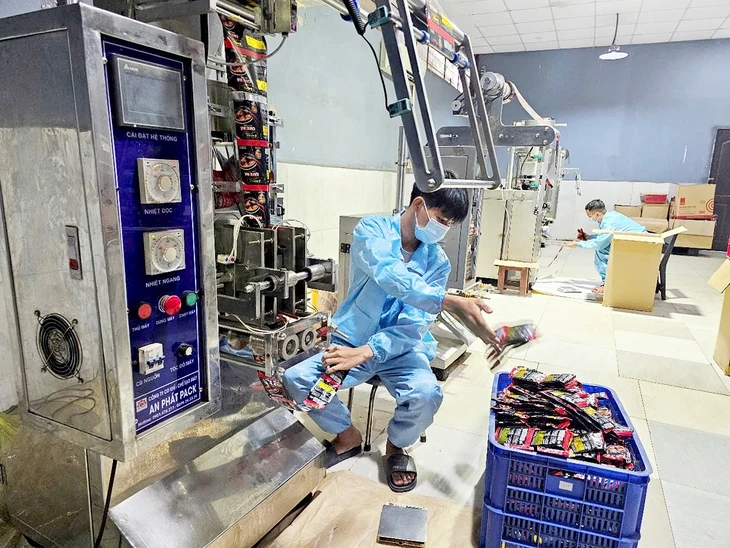
Dr. Vo Tri Thanh, Director of the Institute for Brand and Competitiveness Strategy, also said that strong institutional reforms are needed to attract investment, both domestic (especially private) and foreign investment. Disbursement must be accelerated more strongly but also more effectively than public investment, especially in infrastructure development.
"For infrastructure projects that are behind schedule, capital, including bank credit, is stuck here in large quantities. Therefore, the Government, ministries, and localities need to focus on removing obstacles to soon complete and put into operation. This is also a very important resource for economic growth," said Mr. Thanh.
Source



![[Photo] Ha Giang: Many key projects under construction during the holiday season](https://vphoto.vietnam.vn/thumb/1200x675/vietnam/resource/IMAGE/2025/5/1/8b8d87a9bd9b4d279bf5c1f71c030dec)
![[Photo] Binh Thuan organizes many special festivals on the occasion of April 30 and May 1](https://vphoto.vietnam.vn/thumb/1200x675/vietnam/resource/IMAGE/2025/5/1/5180af1d979642468ef6a3a9755d8d51)
![[Photo] "Lovely" moments on the 30/4 holiday](https://vphoto.vietnam.vn/thumb/1200x675/vietnam/resource/IMAGE/2025/5/1/26d5d698f36b498287397db9e2f9d16c)




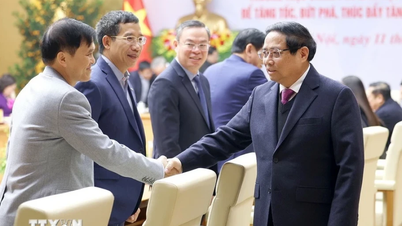

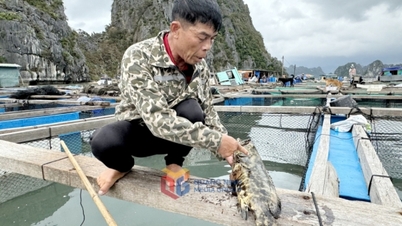
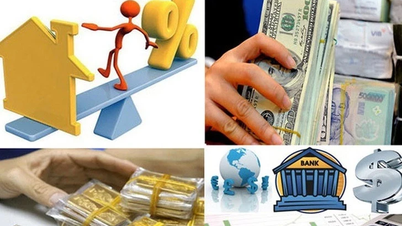






































































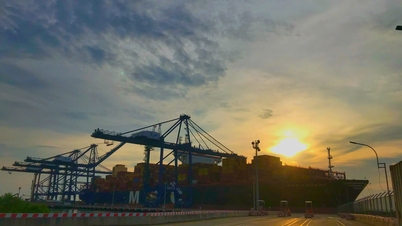














Comment (0)